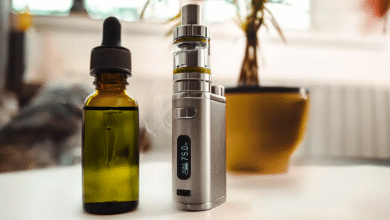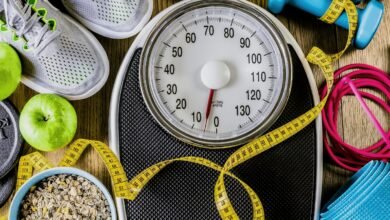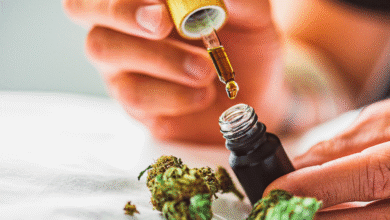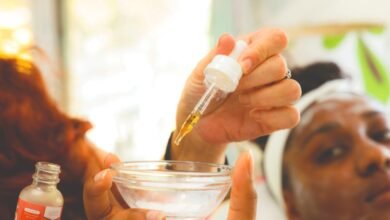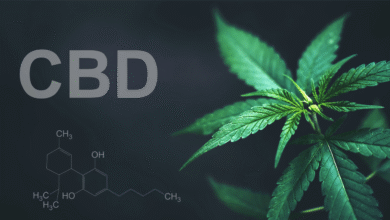Understanding CBD Dosing: How Much Should You Take?
In this comprehensive guide, we’ll break down everything you need to know about CBD dosing, including what it is and the factors that affect it

Cannabidiol, better known as CBD, has rapidly gained popularity for its potential therapeutic benefits. From managing anxiety and chronic pain to improving sleep and promoting relaxation, CBD is used by millions seeking natural remedies. However, one of the most common and important questions remains: How much CBD should you take? This brings us to the essential topic of CBD dosing.
In this comprehensive guide, we’ll break down everything you need to know about CBD dosing, including what it is, the factors that affect it, common methods of intake, recommended guidelines, and how to safely find your ideal dose.
What Is CBD Dosing?
CBD dosing refers to the specific amount of cannabidiol you consume at one time or over a day. Determining the right dose is critical for maximizing the therapeutic benefits of CBD while minimizing potential side effects.
Unlike pharmaceuticals, CBD does not follow a universal dosage. The optimal CBD dosage depends on several variables, including body weight, the condition being treated, individual body chemistry, the type of CBD product used, and the concentration of CBD in the product.
Why CBD Dosing Matters
Incorrect dosing can result in ineffective treatment or undesired effects. A dose that’s too low might not produce any noticeable results, while a dose that’s too high could lead to drowsiness, dry mouth, or even dizziness in some users. Therefore, understanding CBD dosing is essential to experience its full range of benefits without negative side effects.
Moreover, accurate CBD oil dosage becomes even more crucial for individuals taking other medications, as CBD can interact with certain drugs.
Factors That Influence CBD Dosing
Several factors influence how your body responds to CBD, and by extension, your ideal CBD dosing. Let’s explore these in detail:
1. Body Weight
Heavier individuals typically require a higher dose of CBD to feel its effects compared to lighter individuals. A general rule of thumb is to take 1–6 mg of CBD for every 10 pounds of body weight.
Example:
- A person weighing 150 lbs may start with 15–25 mg of CBD.
- A person weighing 200 lbs might require 20–35 mg.
2. Severity of Condition
The severity of the condition being treated significantly impacts CBD dosage. For mild anxiety or minor discomfort, a lower dose might be sufficient. For chronic pain, severe insomnia, or epilepsy, higher doses are often required.
3. Individual Body Chemistry
Everyone’s body is different. Metabolism, tolerance, genetics, and the endocannabinoid system play major roles in how CBD is processed and how effective it is. This means CBD dosing may vary even among individuals with the same weight and condition.
4. Type of CBD Product
There are various forms of CBD: full-spectrum, broad-spectrum, and isolate. Full-spectrum CBD contains other cannabinoids and terpenes that may enhance effects via the “entourage effect.” As a result, CBD oil dosage may be lower for full-spectrum products compared to isolates.
5. Method of Consumption
Different consumption methods affect the bioavailability of CBD—how much of it actually enters your bloodstream:
- Sublingual (CBD oil, tinctures): 20–30% bioavailability
- Inhalation (vapes): 30–50%
- Oral (capsules, edibles): 10–15%
- Topical (creams, balms): Localized effect; low systemic absorption
The method you choose will influence how much CBD you need.
Common CBD Dosage Guidelines
While there’s no one-size-fits-all dosage, here are general CBD dosing recommendations for common issues:
| Condition | Suggested Starting Dose |
|---|---|
| General wellness | 10–20 mg per day |
| Anxiety & Stress | 15–30 mg per day |
| Chronic Pain | 25–50 mg per day |
| Insomnia | 20–40 mg before bed |
| Epilepsy (FDA-approved Epidiolex) | 2.5 mg/kg twice daily |
Always start low and go slow—this is the cardinal rule of CBD dosing.
How to Calculate Your CBD Dosage
Most CBD products list the total milligrams of CBD in the package. Here’s how to calculate a proper CBD oil dosage:
- Read the Label: If a 30 mL bottle contains 600 mg of CBD, that’s 20 mg per 1 mL dropper.
- Start Small: Begin with half a dropper (10 mg) and see how your body responds.
- Adjust Gradually: Increase your dose by 5–10 mg every few days until desired effects are achieved.
Example Calculation:
- You weigh 180 lbs.
- Start with 1–3 mg per 10 lbs: 18–54 mg/day.
- Begin with 20 mg, evaluate effects after a week, and increase if needed.
Tracking your progress in a CBD journal can help fine-tune your CBD dosing more accurately.
Microdosing vs. Standard Dosing
Microdosing is a technique where you take small amounts of CBD throughout the day instead of a single large dose. This method helps maintain consistent CBD levels in the bloodstream and may be ideal for managing chronic conditions or reducing anxiety.
Pros of Microdosing:
- Steady therapeutic effects
- Fewer side effects
- Customizable CBD dosage guide
Signs You May Be Taking Too Much or Too Little
Finding the sweet spot in CBD dosing is key. Here’s how to know if you need to adjust:
Signs of Underdosing:
- No noticeable improvement in symptoms
- Increased anxiety or persistent discomfort
- Trouble sleeping
Signs of Overdosing:
- Drowsiness
- Diarrhea
- Low blood pressure
- Light-headedness
These effects are rare and typically associated with extremely high doses.
CBD Dosage by Product Type
Let’s explore CBD dosing recommendations based on different product formats:
1. CBD Oil and Tinctures
Highly versatile with adjustable doses. Start with a few drops under the tongue. Average range: 10–40 mg/day.
2. CBD Capsules
Pre-measured doses. Ideal for consistency. Common dosage: 15–25 mg per capsule.
3. CBD Edibles
Delayed onset but long-lasting effects. Dosing: 5–30 mg per edible, depending on potency.
4. CBD Vapes
Fastest onset (1–5 minutes). Best for acute symptoms. Dosage can vary; start with 1–2 puffs and assess.
5. CBD Topicals
Best for localized issues like joint or muscle pain. No systemic dosing required.
Each form has different onset and duration times, influencing your CBD dosage guide.
Tips for Effective CBD Dosing
- Choose High-Quality Products: Look for third-party lab-tested CBD with clear labels.
- Be Patient: It can take days or weeks to find the right dose.
- Stay Consistent: Use CBD daily at the same time for best results.
- Consult Your Doctor: Especially important if you’re taking medications or have medical conditions.
CBD Dosing for Pets
Just like humans, pets may benefit from CBD. Typical CBD dosing for dogs and cats is based on body weight—1–2 mg of CBD per 10 pounds. Always use pet-specific CBD products and monitor for side effects.
What Science Says About CBD Dosing
Studies on CBD dosing remain ongoing. One study in the Journal of Clinical Medicine found that anxiety patients experienced significant symptom relief with daily doses of 25–75 mg. Meanwhile, clinical trials for epilepsy used high doses—up to 600 mg/day—but under strict medical supervision.
These variations highlight the importance of individualization in CBD dosing.
Legal and Safety Considerations
CBD derived from hemp is federally legal in the U.S. (containing less than 0.3% THC), but state laws vary. Always check local regulations.
Regarding safety, the World Health Organization (WHO) has stated that CBD is generally well tolerated with a good safety profile. However, CBD dosage must be tailored to avoid unnecessary risks.
Frequently Asked Questions About CBD Dosing
Q: How long does it take to feel the effects?
- Varies by method: vapes (minutes), sublingual (15–30 mins), edibles (1–2 hours).
Q: Can I overdose on CBD?
- Not in the traditional sense, but extremely high doses may cause discomfort. Stick to a gradual CBD dosage guide.
Q: How often should I take CBD?
- Most people take it 1–2 times daily. Some prefer microdosing throughout the day.
Conclusion: Start Low, Go Slow, and Listen to Your Body
Finding the right CBD dosing isn’t an exact science—yet. But with a thoughtful approach, careful tracking, and the willingness to adjust, you can discover the optimal dose for your needs.
By considering body weight, condition severity, product type, and method of consumption, you empower yourself to harness the full benefits of CBD safely and effectively. Whether you’re new to CBD or refining your routine, remember: CBD dosing is a personal journey, and patience is key.

